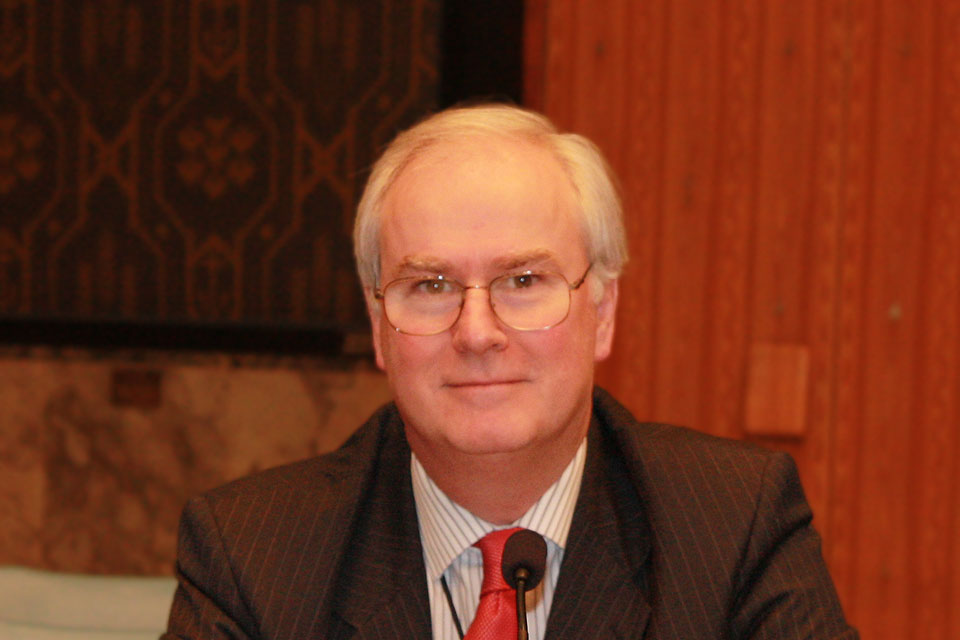"UK is committed to addressing sexual violence in conflict"
Statement by Ambassador Lyall Grant, PR of the UK Mission to the UN, for the Security Council Open Debate on Women, Peace and Security

Thank you, Madam President, and thank you for holding this debate today and for coming to New York to give added impetus to this important issue.
I join others in thanking the Secretary General and SRSG Zainab Bangura for their valuable briefings today and Madame Keita for her moving words on behalf of the NGO Working Group.
Madam President,
The United Kingdom is deeply committed to addressing sexual violence in conflict - one of the most persistent and neglected injustices in the world today. Last week, the G8 Foreign Ministers, under the UK Presidency agreed a historic Declaration on Preventing Sexual Violence in Conflict. They pledged to work together and with others, in a concerted and comprehensive campaign to address this crime. The G8 declared – for the first time – that rape and serious sexual violence in conflict constitute grave breaches of the Geneva Conventions as well as war crimes. This decision recognises our responsibility to actively search for, prosecute or hand over for trial anyone accused of these crimes, regardless of nationality, wherever they are in the world. Today’s debate is an opportunity to reinforce that message and to display a strong, shared message that there is no safe haven for perpetrators of rape and sexual violence. The interventions we have heard so far in this debate are very encouraging on this point.
Madam President,
The United Kingdom welcomes the Secretary-General’s timely report. A key objective of the United Kingdom’s Preventing Sexual Violence Initiative is to strengthen United Nations and other international efforts to eradicate this scourge. We wholeheartedly support the work and mandate of Madame Bangura, especially her efforts to build coherence and coordination in the UN’s response through UN Action and her focus on national ownership and responsibility. This report provides an important opportunity to assess progress and to consider what more there needs to be done. And it is clear there is a huge amount. Madam President, I would like to highlight the following three critical areas that we must address:
First, the UK would like to commend the Secretary General for recommending that all country resolutions and mandate renewals for UN peacekeeping and special political missions systematically address sexual violence and include the specific language of Security Council Resolution 1960. We agree. Peacekeeping mandates should include language on the cessation of sexual violence; dialogue with conflict parties to seek protection commitments; and the deployment of women protection advisors - particularly ensuring that they are funded from Peacekeeping mission budgets. We must be rigorous and consistent in our approach on this issue.
Second, we recognise that a focus on the difficult issues surrounding Security Sector and Justice Reform is key - providing training for national security forces; ensuring the principles of no amnesty for perpetrators of grave human rights violations, including sexual violence; and ensuring that the security sector is accessible and responsive to all. In the justice sector, work to train the police, magistrates and judges and more training for female lawyers will result in more effective investigations and prosecutions. This is also very welcome.
Third, we welcome calls to ensure that the Security Council, mediators, envoys, and Member States actively engage in dialogue with parties to conflict on conflict related sexual violence. This is central to ensuring that sexual violence as a method or tactic of conflict is explicitly recognised in subsequent peace processes and ceasefire agreements. As my Foreign Secretary said on the 11th of April, “we need such commitments to end the treatment of rape and sexual violence as a secondary issue, and to put women and women’s rights front and centre in conflict resolution.”
Finally Madam President, as the Ambassadors of China and Luxembourg, among others, have highlighted let us not forget that women’s full and equal participation is fundamental to combating sexual violence. Women must not be seen merely as passive victims but as active participants who are central to all efforts to combat this horrific phenomenon.
Madam President, let me end as I began: by thanking you for holding this debate, and reinforcing the Council’s continued commitment to tackling this issue. As you know Madam President, our Foreign Secretary is personally committed to this issue. Together, we absolutely must deliver on our promises to those devastated by these appalling and life-shattering crimes, wherever they take place. A strong resolution that demonstrates this shared commitment is both timely and critical, and we intend to use a further debate in June, during our Presidency of the Council, to keep attention on the need to end these crimes.
Thank you.